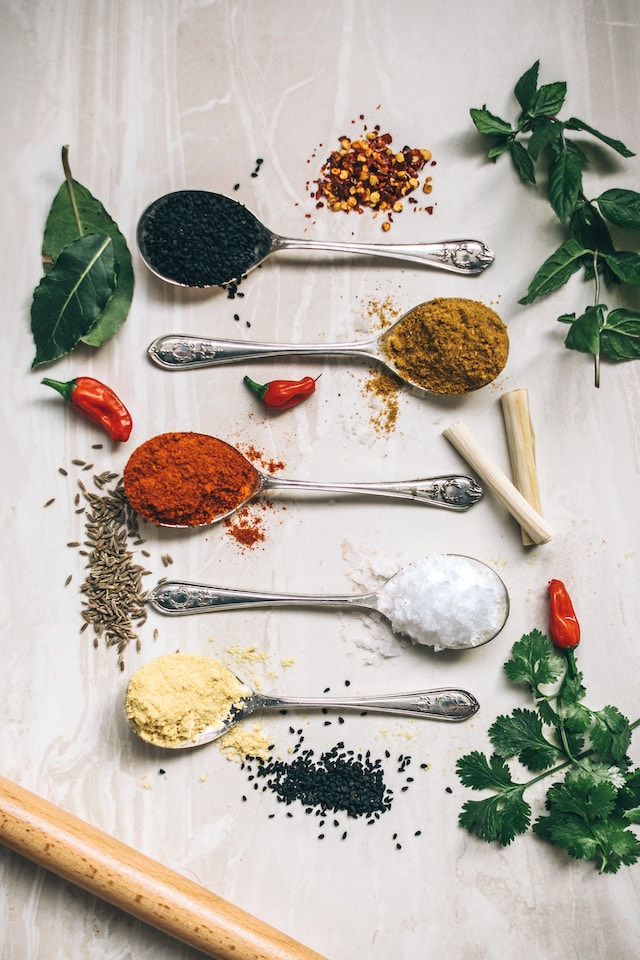
Ayurveda believes that each and everything on this planet constitutes of five elements, and so is our body. The five elements are space, air, fire, water and earth. These five elements combine together to form the three body types (dosha); Vata, Pitta and Kapha. The qualities of the dosha which are more predominant in the body are known as the body type of that person.
Dosha’s are the three body energetics, made of qualities, which support right body function in right amount, and destroy body function in excess or deficiency.
Body type can be single, dual or Tridoshic and is an inherited constitution that cannot be altered. All three doshas are responsible for maintaining homeostasis in the body. When all three dosha’s are in balance, they endow the person with unaffected sense organs, strength, complexion and happiness with a long life span, but if they are in abnormal state i.e. when not in balance, they give rise to severe abnormalities.
Vata
Vata means a combination of air and space. Vata is responsible for all the movements in the body. Vata people resemble the characteristics of space and air, such as light, loneliness, dry, cold, mobile, and rough. Vata is a combination of space and air elements.
- Physical characteristic: Physically Vata people are very active. They usually have dry skin, thin hair and small eyes. They do things very quickly and try to finish their work in one day. They are thin, tall with narrow body structure and it is difficult for them to gain weight. On the other hand, they lose weight easily. Thin, dry hair and cold extremities (hand & feet) are some of the other characteristics of Vata body type. As far as their digestion is concerned, they have an average digestion. Sometimes, it is good and sometimes not. They eat small meals but can eat many times a day.
- Mental characteristics: Vata people are usually confused with their decisions and they worry a lot. They are often fearful and anxious. A Vata mind is always in a rush and cannot stop thinking. They prove to be good leaders and very creative as well. They are quick learners but they forget things quickly as well. They also have irregular sleeping pattern.
- Emotional characteristic: Emotionally, they are sensitive. They get affected by things very quickly. They tend to worry a lot when not in balance.
Vata is vitiated, pacified and accumulated in summers, rainy season and autumn.
- Signs of imbalance: Vitiation of Vata produces many signs and symptoms in the body which are the alarming signals for a disease in the future. These signs and symptoms are, headache, stress, anxiety, constipation, disturbed sleep, poor appetite, air in the digestive tract, increasing weight around the abdomen, insomnia, nervousness, lack of concentration, fear, talking without consciousness and many more. Vitiation of Vata can cause 80 diseases in the body, some of them include sciatica, tachycardia, migraine, IBS, Crohn’s disease, Parkinson’s, arthritis, deafness, tremors, giddiness etc.
- How to balance: Vata can be balanced by changing their diet and lifestyle. They need to eat a diet which is opposite to the characteristics of Vata. It can be balanced by eating a diet which is warm, heavy and unctuous. They should add foods that are sweet, salty and sour in taste. These people should always keep their skin moist, so oil massage (Abhyanga) is the best daily routine for them. Relaxing and taking proper rest is another tip for those with a vitiated Vata dosha. Staying in warm places can give a lot of relaxation to them.
Pitta
Pitta is responsible for the digestion, assimilation, vision, and hunger in the body. Pitta signifies fire and water. So the pitta types of people are those who resemble the qualities of fire and water such as: hot, sharp, liquid, sour, mobile, slightly unctuous and pungent.
- Physical characteristics: Physically they are strong and muscular. They have a medium frame and hot flushed skins. They have a strong digestion, so they have to eat every time to manage their energy. Hence, they cannot afford to skip meals, if they do so they can suffer from many Pitta imbalance disorders. They sweat a lot as they have hot body temperature. Pitta body type prefers cool weather.
- Mental characteristics: Mentally, Pitta people are short tempered and aggressive in nature as well. They like to live a disciplined life and are very focused with work. They are well known for their fighting spirit. They also have a sharp mind and are intelligent. They are revealing, comprehensive and quick learners.
- Emotional Characteristics: Emotionally, Pitta people are quite strong and they concentrate well. They do not believe in keeping things to themselves and are often outspoken.
Pitta is vitiated, pacified and accumulated in rainy season and autumn.
- Signs of imbalance: if Pitta is balanced in the body it will perform its normal functions and will not harm the body. Once it is imbalanced it will lead to many signs and symptoms which hinder the normal functioning of the body. Diarrhoea, gastritis, heart burn, mouth ulcers, inflammation, bitter taste in mouth, too much anger, frustration, early greying of hair, excessive thirst, and low immune system are some of the signs of vitiated Pitta in the body. If Pitta is aggravated the person can suffer from 40 types of diseases such as hyperacidity, pyrexia, pustules, jaundice, articular patches, burning in skin, herpes, and stomatitis. It can cause skin issues such as dermatitis, eczema, and psoriasis.
- How to balance: Pitta can be balanced by adapting diet and lifestyle opposite to the characteristics of Pitta. It can be balanced with sweet, bitter and astringent taste. Ghee is an excellent remedy for Pitta vitiated people. They need to avoid sour and salt taste. They should be advised to take food providing a cooling sensation to the body and should remain in cool places, away from the sun.
Kapha
Kapha is responsible for the overall build and strength of the body. The Kapha body type bears the characteristics of earth and water such as cold, stable, heavy, soft, immobile, and sweet. Kapha is a combination of the water and earth element.
- Physical characteristics: They have big, heavy and broad builds. It is difficult for them to lose weight but they gain weight easily. Their digestion is slow, so they can easily skip meals. Usually the bowel movement is good. They have cooler body temperature, so they prefer warm & dry weather. They are also said to be opposite of Vata as they are slow in action and a bit lazy. They do things slowly and in a stable manner. Their sleep is good.
- Mental characteristics: They are slow learners, but once they learn something they remember it for long.
- Emotional characteristics: They are very calm, cheerful and happy most of the time. They are very patient and are never in a rush. They are helpful and kind. People love the company of a Kapha type person due to their extra caring nature.
Kapha is vitiated, accumulated and pacified in early winters, spring and summers.
- Signs of imbalance: Kapha vitiation can cause 20 different diseases in the body, some of them are drowsiness, heaviness in the body, hypothyroidism, diabetes, overweight, high cholesterol, and sinusitis. Anorexia, obesity, oedema, water retention, bronchitis, chronic rhinitis, asthma, cough, fatigue, and depression are some of the other concerns related to vitiated Kapha.
- HOW TO BALANCE: Kapha can be balanced by adapting lifestyle and diet opposite to the qualities of Kapha. It is balanced by eating warm, light and dry food. Pungent, bitter, and astringent are the three best tastes to balance Kapha. Exercise, yoga and meditation are best to overcome the diseases related to Kapha imbalance. Kapha people should remain active and try to eat less.
If you want to know more about your body type (dosha) or if you are struggling with any of the imbalances, please contact Aspects of Healing on 08 8110 4300 or email enquiries@aspectsofhealing.com.au to arrange an appointment.
